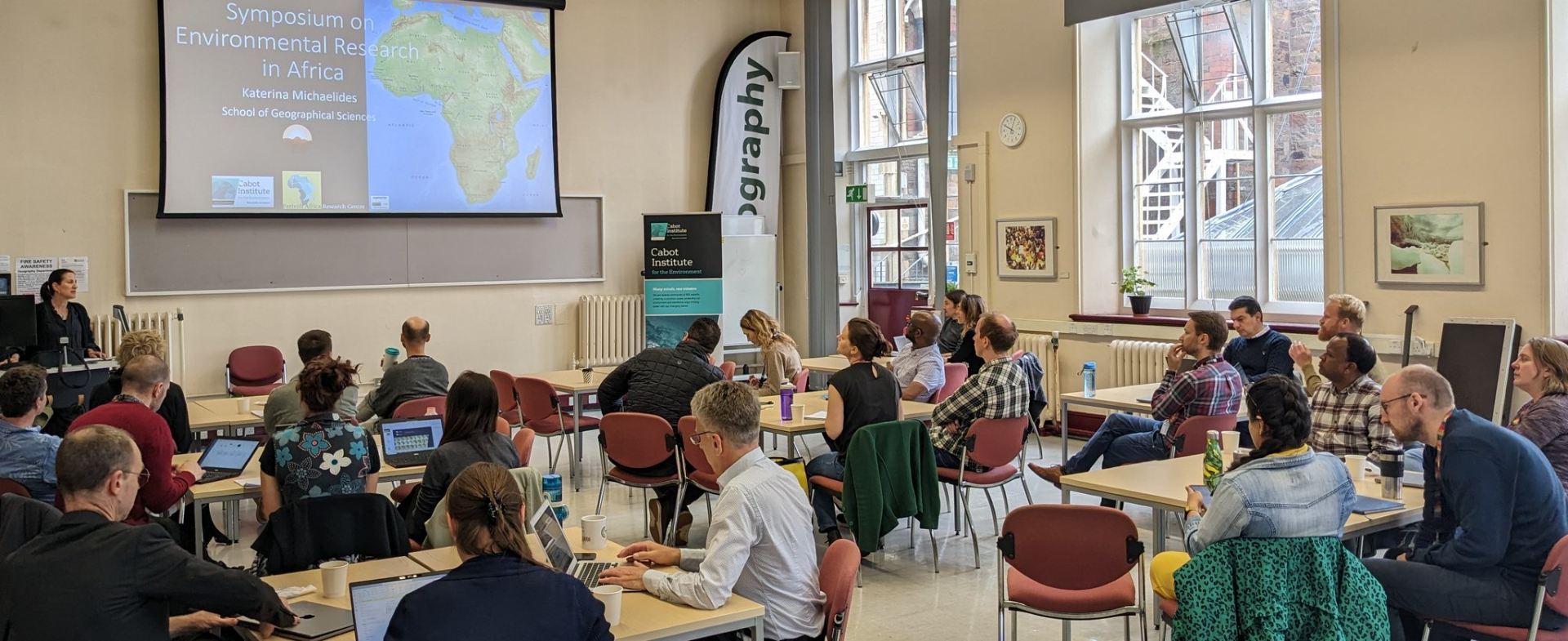Cabot-PARC Symposium on Environmental Research in Africa
A half-day symposium was held at the University of Bristol this week, encouraging researchers from environmental research and other disciplines to connect with colleagues working in Africa.
Climate change presents a huge challenge to the continent, and Dr Katerina Michaelides, Associate Professor in Geographical Sciences, opened the event by presenting some of these issues, including predictions on which regions are due to get drier. There are also risks of weather extremes and flash flooding, and associated problems such as pest infestations. Areas prone to earthquakes and volcanic eruptions can end up facing several issues simultaneously, creating hazard hotspots.

The Cabot Institute brought together several University of Bristol researchers working in Africa to give presentations about their projects, showcasing the breadth of Africa-focused environmental research across different faculties. Topics included earthquakes, volcanoes, floods, climate, fish and food security, and climate services for pest and plant diseases.
PARC research programmes
This event enabled PARC to present its Africa-led capstone programmes of research on Climate Change and Conservation (CCC), and Water Management, Sanitation and Hygiene (WASH), and to highlight opportunities for collaboration using a transformative approach.
Dr Susan Jim, PARC Manager introduced PARC’s mission to champion a new mode of global North to Africa research partnerships that redresses the imbalances in global knowledge production for African universities, knowledges and scholarship, and the upcoming launch of the Charter Initiative.
Our capstone programmes are the main way in which Cabot Environmental researchers can engage with the PARC research community.
There are several seedcorn projects already in train under the CCC capstone, developed and led by the University of Namibia (UNAM) and Namibia University of Science and Technology (NUST). Initial concept sketches in three priority Clusters of work are being developed by African researchers from the AUDA/NEPAD network under the WASH capstone:
- Climate Change and Disaster Resilience
- Climate Smart (Urban & Rural) Farming/Agriculture
- Water Governance and Groundwater/Surface Water/Hydro Modelling
Colleagues who are interested in collaborating with our researchers should send their details via email to vicky.jones@bristol.ac.uk (Cabot Institute), to be added to any networking groups or communications channels when they are established.
PARC also aims to foster mutual University of Bristol-Africa learning and strengthening of capacities among the next generation of scholars both in our capstone areas of research but also on the theory and practice of transformed partnership modes. To this end, PARC is working with the Partnership for Skills in Applied Science, Engineering and Technology – Regional Scholarship and Innovation Fund (PASET- RSIF) to bring a cohort of African PhD students to the University of Bristol who will be hosted by the Cabot Institute in January next year.
The symposium was organised by Dr Katerina Michaelides with the support of the Perivoli Africa Research Centre (PARC) and Cabot Institute for the Environment.
